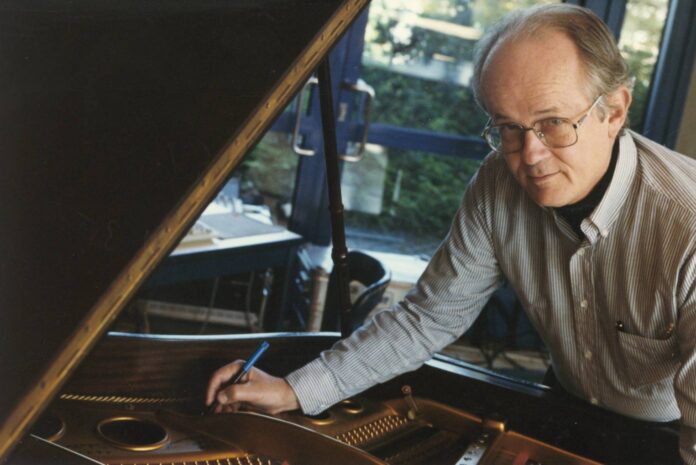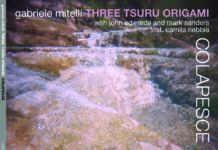American composer Tom Johnson (1939-2024), whose body of work included instrumental and vocal pieces employing pared-down musical material, died in Paris on the last day of 2024, at age 85.
Johnson grew up in the small town of Greeley, Colorado, where he began taking piano lessons while in grammar school and showed an early interest in composing. He went to Yale to study music, where he earned both his bachelor’s and master’s degrees. After obtaining his master’s degree in 1967, he moved to New York. Once in New York, he studied privately with New York School minimalist composer Morton Feldman, whom he’d first met during a course at Bennington College in 1965.
While in New York, Johnson composed a number of pieces in his own style of minimalism. These compositions, which drew on a restricted amount of basic musical material, included “the Four Note Opera” of 1972, an opera that, as its title advertises, was made up of only four notes (A, B, D, and E), and “An Hour for Piano” (1971). The latter piece consists of a limited number of repeating motifs in G and their linkages, all played at a steady tempo. Perhaps his best known composition is “Failing: A Very Difficult Piece for Solo String Bass” of 1975. In “Failing,” the performer is asked to play an instrumental part of increasing technical difficulty, all the while reciting a complicated text telling of what it is he or she is doing, as it’s being done. Is the performance successful if the performer negotiates a way through it without making a mistake? Or does it succeed when it ends in failure, as the title suggests? It’s an open question.
Both “Failing” and “The Four Note Opera” showed a playfully meta side to Johnson’s work of the 1970s in that both have the performers describe their own performances as they are being performed. This meta, or self-reflexive, dimension to Johnson’s work demonstrated an affinity with the kind of conceptualism that was predominant in the New York art world of the period. It was an affinity that was on full display in 1974’s Imaginary Music, a book containing deliberately unplayable works.
While he was in New York, Johnson covered some of the more experimental music being created in the city for The Village Voice. He wrote a weekly column for the Voice from 1972 until 1983, when he left New York for Paris, where he settled permanently. A collection of his articles, the historical value of which is substantial for its documentation of the then-little-known emerging music scene, was published as The Voice of New Music. It can be downloaded in PDF from Editions 75.
Johnson’s later compositions featured mathematical structures and patterns that develop in a systematic manner. For example the fractal-like music of 1996’s “Self-Similar Melodies” is generated from patterns in which the structure of the whole is reflected in its constituent parts. This interest in systems-oriented composition dates back to the 1960s, a time when systems aesthetics were being explored by visual artists and sculptors. For example, a 1967 paper he wrote explored the possibility of processing melodies through a Markov chain. The Markov paper also demonstrated his interest in articulating the theoretical side of the compositional art, something he did in a number of statements and analytical articles published in various journals.
Through it all he continued to consider himself a minimalist, which he described as a composer “working with reduced means.”
_______________________________________







